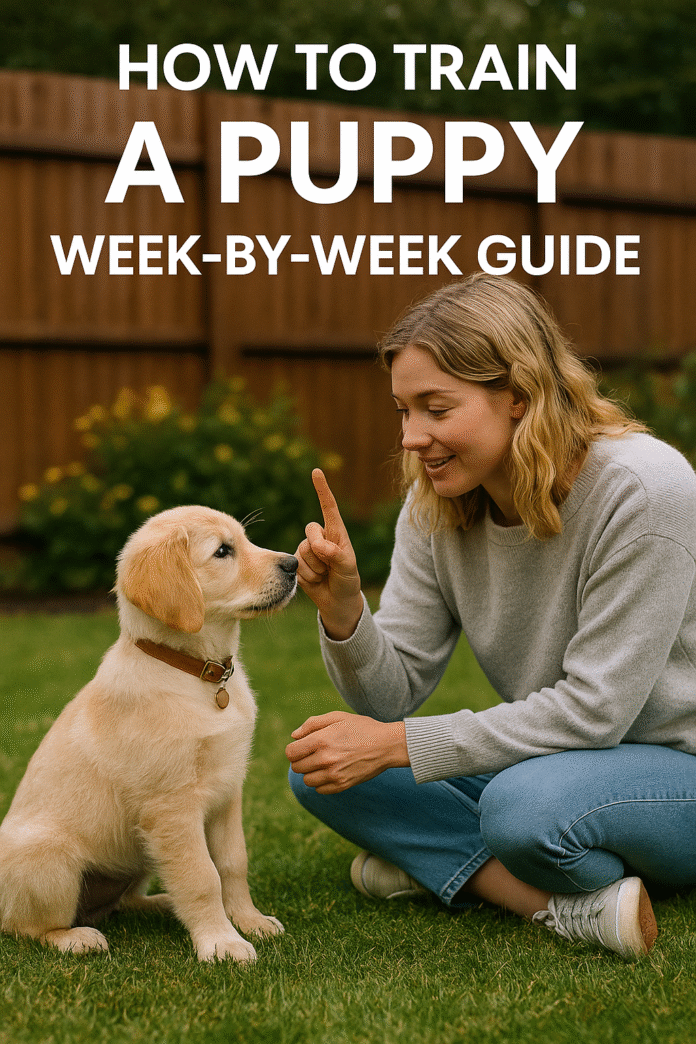One of the most significant and fulfilling responsibilities of pet ownership is training your dog. A puppy that has received proper training develops into a well-mannered dog that blends in well with your house. Although training a puppy can seem like a daunting task, it becomes lot simpler and more pleasurable for you and your dog if you divide it up into reasonable chunks.
You may begin laying a solid training foundation right away with our week-by-week puppy training program. Whether you’re a first-time puppy owner or just looking to refresh your skills, this guide will provide you with all the essential steps to raise a happy, well-trained dog.
Week 1: Setting the Foundation
In the first week, the goal is to build trust and establish a relationship with your puppy. Training sessions should be brief and constructive during this period while your puppy is getting used to their new surroundings.
Key Focus:
- House Training: Begin introducing your puppy to potty training. Take them outside often, particularly after naps and meals.
- Basic Commands: Introduce simple commands like “sit” and “stay.” Use positive reinforcement with treats.
- Socialization: Start socializing your puppy with family members and other pets, helping them feel comfortable in their new environment.

Week 2: Establishing Routines
Consistency is key during the second week of training. Establishing a daily pattern for feeding, toilet breaks, and playtime is crucial since puppies thrive on routine.
Key Focus:
- Crate Training: Introduce your puppy to their crate. Make it a joyful place by adding toys and treats.
- Leash Training: Begin leash training by getting your puppy accustomed to wearing a collar and walking on a leash.
- Establish ground rules, such as not chewing on shoes or furniture.
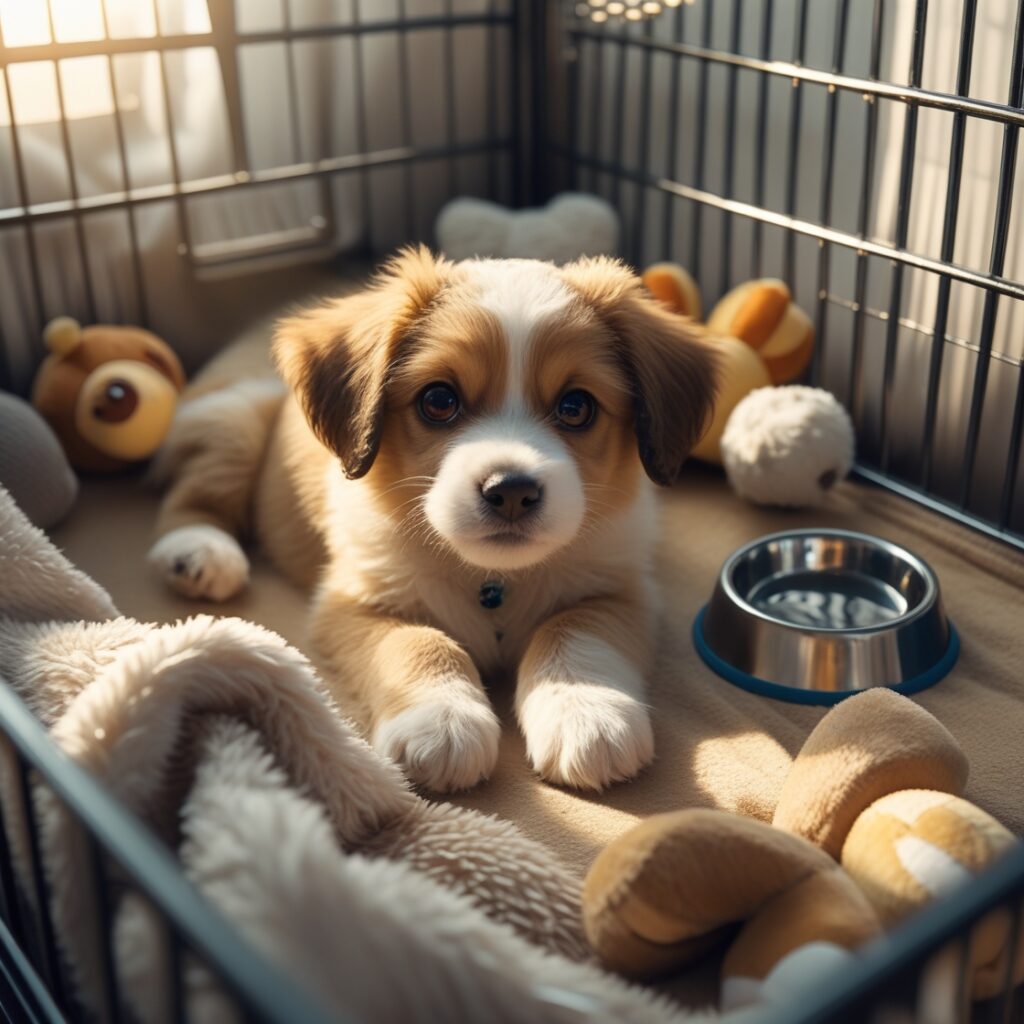
Week 3: Strengthening Basic Commands
By week three, your puppy should start recognizing basic commands and responding positively. Make training sessions fun and short to maintain their interest.
Key Focus:
- Sit, Stay, and Come: Continue practicing these commands and start adding more complexity by combining them.
- Potty Training: Focus on reinforcing housebreaking habits. Praise and reward your puppy when they eliminate in the correct area.
- Redirecting your puppy’s biting propensity to toys will help them learn not to bite.
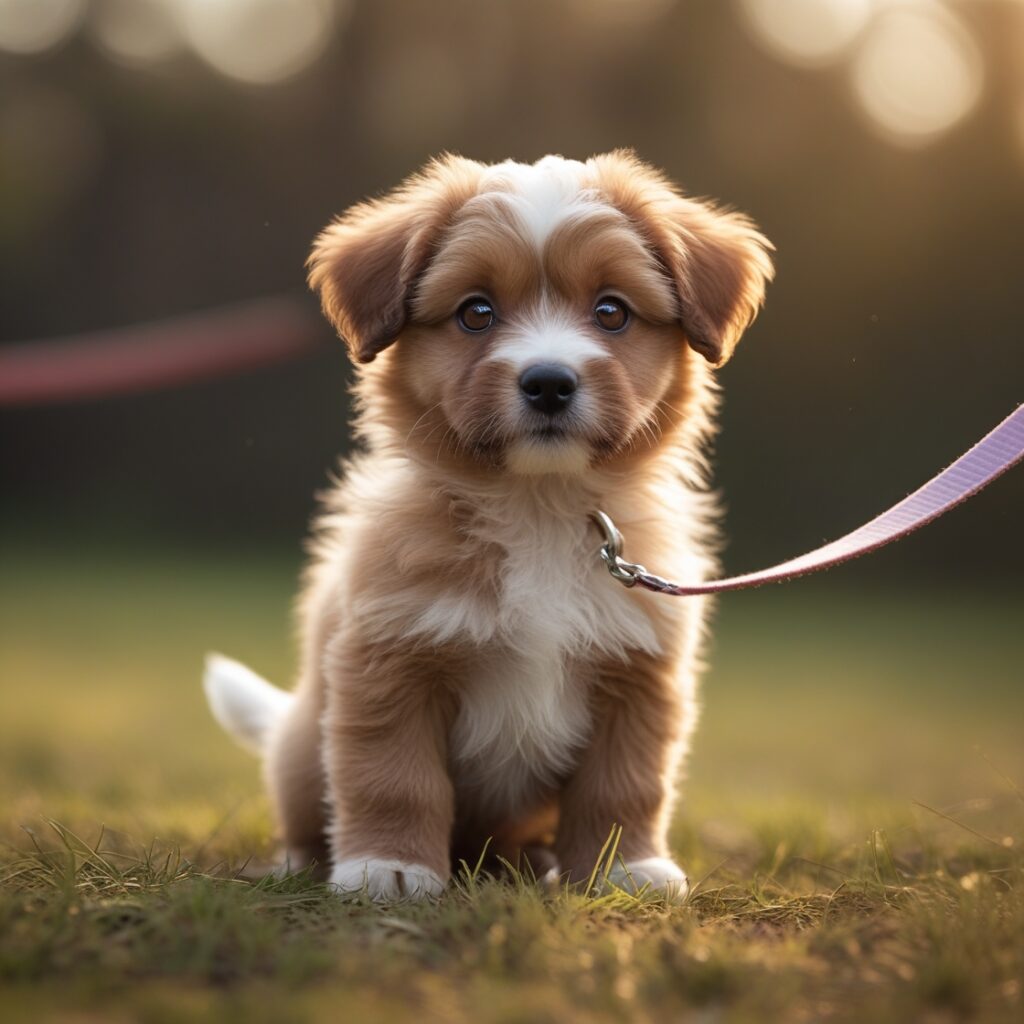
Week 4: Increasing Socialization
Socialization is a crucial part of a puppy’s growth. Continue introducing your puppy to different environments, sounds, and people to help them become confident and well-rounded.
Key Focus:
- Playdates with other puppies and exposing them to new environments, like as parks or pet-friendly establishments, are important aspects of socialization.
- Practice walking without tugging while on a leash. Use treats to encourage good behavior.
- The best way to get your puppy used to being handled is to touch their mouth, ears, and paws softly.
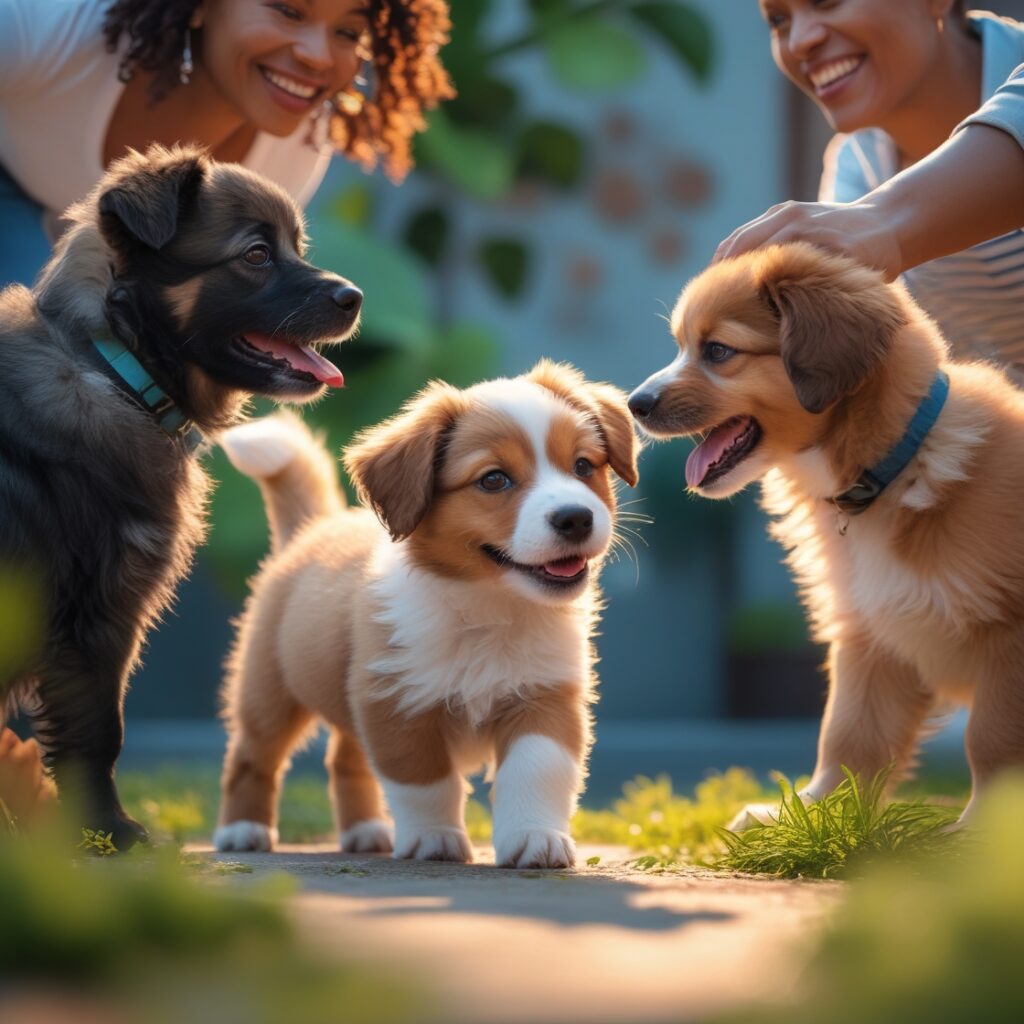
Week 5: Reinforcing Commands and House Rules
At this stage, your puppy should be able to follow commands consistently. Make training more difficult and begin rewarding good conduct.
Key Focus:
- Use the Sit and Stay with Distractions technique. You can use these ideas in a variety of situations with additional input.
- Potty Training: Your dog should be almost totally housebroken and falling less frequently by this point.
- Chewing: Redirect chewing behavior to appropriate toys and ensure your home is puppy-proofed.

Week 6: Continuing Socialization and Training
Your puppy’s training will continue and their social skills will be reinforced throughout the sixth week. The focus should be on keeping up with training and introducing more advanced concepts.
Key Focus:
- Advanced Commands: Introduce more advanced commands like “roll over” or “fetch.”
- Increased Socialization: Introduce your puppy to more people and dogs by taking them to other places, such a dog park.
- Positive reinforcement can be used to address any new issue behaviors, such as jumping or barking.
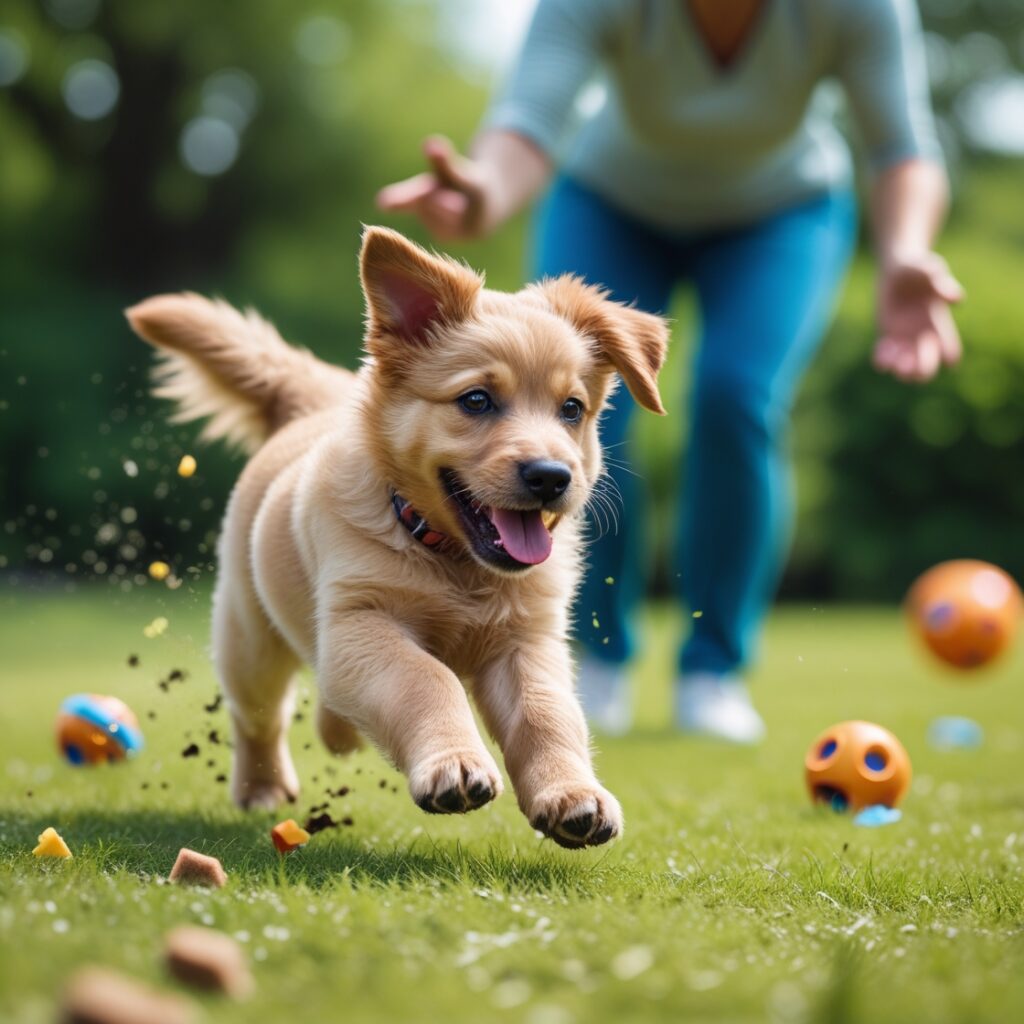
Week 7 and Beyond: Maintenance and Ongoing Training
From week seven onwards, your puppy should have a solid foundation in basic commands and potty training. Now, the emphasis is on keeping up their training and socialization.
Key Focus:
- Consistency: Keep up the consistent reinforcement of instructions and housebreaking guidelines.
- To maintain good behavior and burn off excess energy, get frequent exercise.
- Advanced Training: Start exploring more advanced obedience training or fun activities like agility or dog sports.
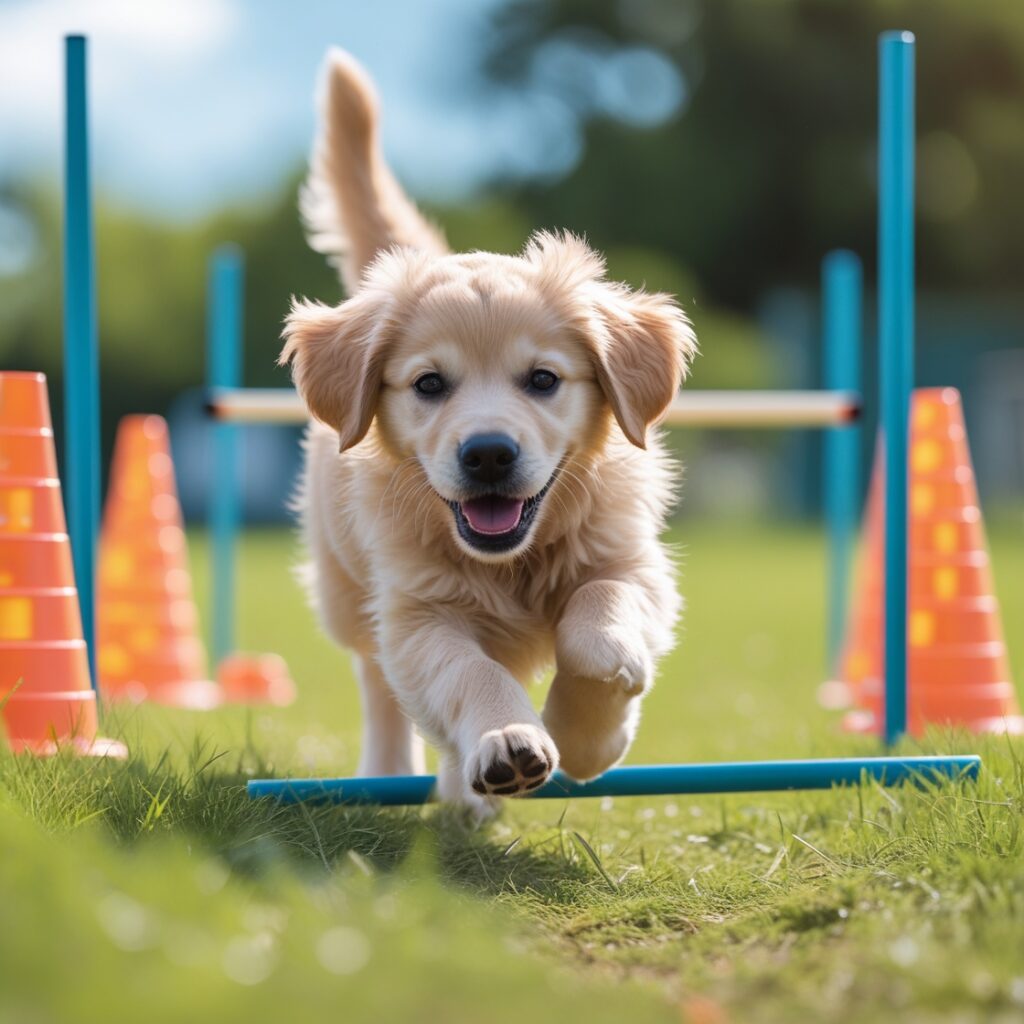
Conclusion
Training your puppy takes time, patience, and consistency. By following this week-by-week puppy training guide, you’ll be setting your puppy up for success in becoming a well-behaved and happy dog. Remember, every puppy is different, so adjust the training based on your puppy’s unique needs and personality.
You’ll see the fruits of your labor as you build upon the foundation you established in the first few weeks. Stick with it, and you’ll enjoy a well-trained companion for years to come.



